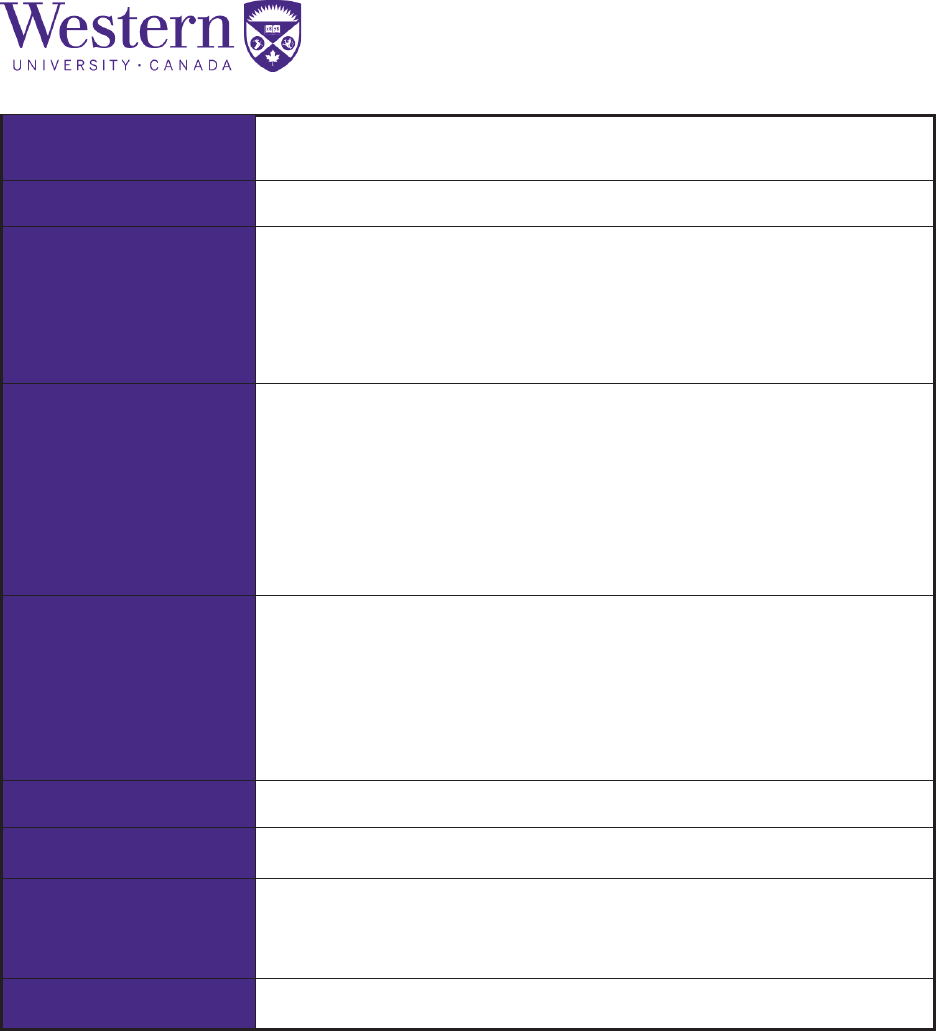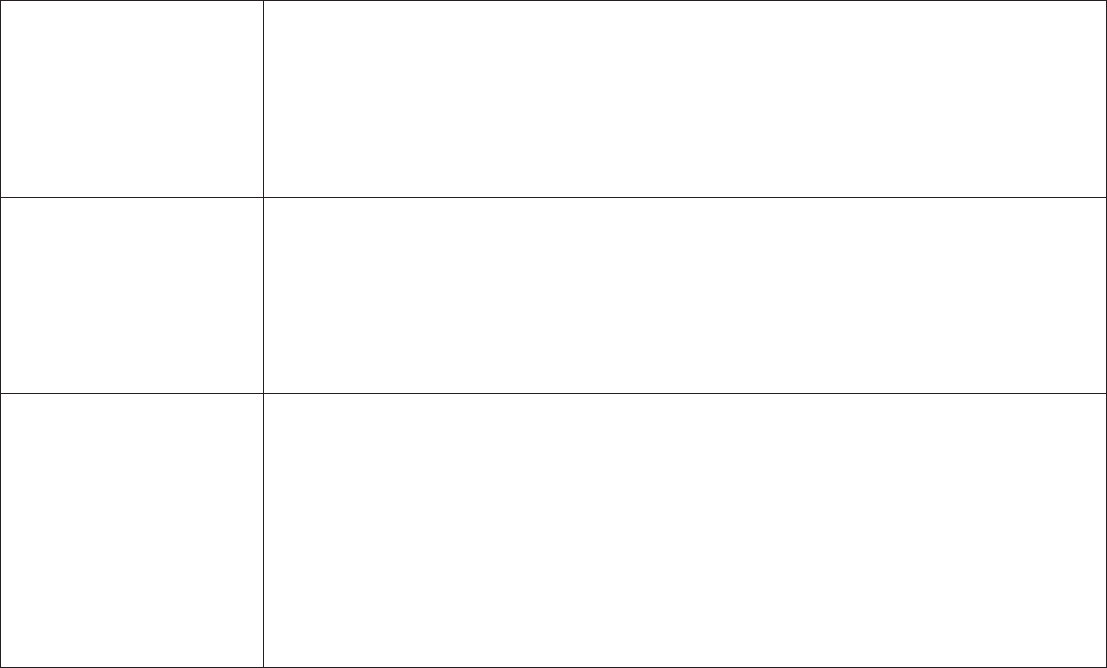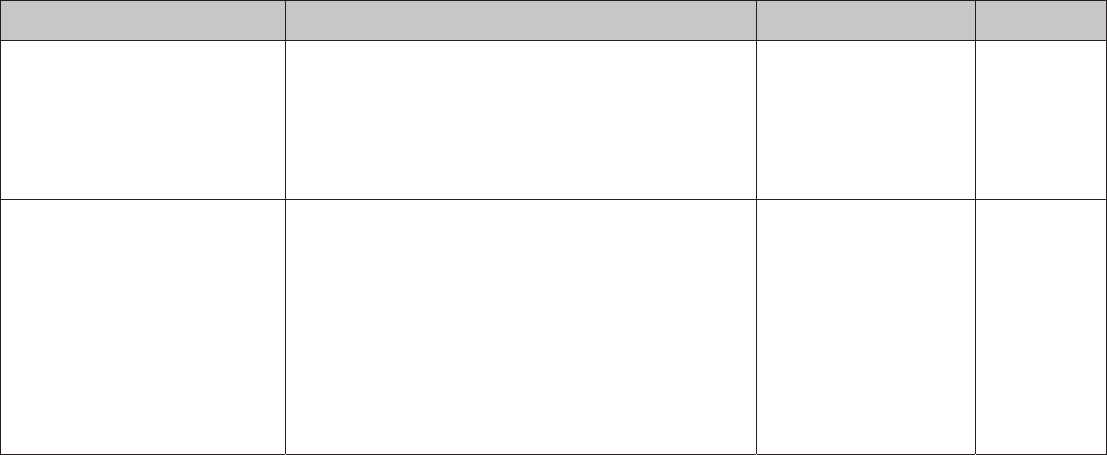
Senate Agenda CONSENT AGENDA – ITEM 12.3(j)
September 16, 2022
Kinesiology Program
Final Assessment Report &
Implementation Plan
Faculty / Affiliated
University College
Faculty of Health Sciences
Degrees Offered
BA and BSc
Modules Reviewed
Honours Specialization in Kinesiology – BA
Honours Specialization in Kinesiology – BSc
Honours Specialization in Kinesiology – BA Sport Management
Honours Specialization in Kinesiology – BA Clinical Kinesiology
Major in Kinesiology
External Reviewers
Dr. Kerry Mummery
Professor, Faculty of Kinesiology, Sport, and Recreation
University of Alberta
Dr. Benoit Seguin
Associate Professor, Faculty of Health Sciences
University of Ottawa
Internal Reviewers
Dr. Brad Urquhart
Associate Dean
Schulich School of Medicine and Dentistry
Margi Patel
4th year BMSc Student
Date of Site Visit
February 17-18, 2022
Evaluation
Good Quality
Approval Dates
SUPR-U: June 29, 2022
ACA: September 7, 2022
Senate (for information only): September 16, 2022
Year of Next Review
Year of next cyclical review: 2029-2030
194
Senate Agenda CONSENT AGENDA – ITEM 12.3(j)
September 16, 2022
Overview of Western’s Cyclical Review Assessment Reporting Process
In accordance with Western’s Institutional Quality Assurance Process (IQAP), the Final
Assessment Report (FAR) provides a summary of the cyclical review, internal
responses and assessment and evaluation of the undergraduate module delivered by
the Kinesiology Program at the Faculty of Health Sciences.
This FAR considers the following documents:
- the program’s self-study brief;
- the external reviewers’ report;
- the response from the program; and
- the response from the Dean’s Office.
The FAR identifies the strengths of the program, opportunities for program
enhancement and improvement, and details the recommendations of the external
reviewers – noting those recommendations to be prioritized for implementation.
The Implementation Plan details the recommendations from the FAR that have been
selected for implementation, identifies who is responsible for approving and acting on
the recommendations, specifies any action or follow-up that is required, and defines the
timeline for completion.
The FAR (including Implementation Plan) is sent for approval through the Senate
Undergraduate Program Review Committee (SUPR-U) and ACA, then for information to
Senate and to the Ontario Universities’ Council on Quality Assurance. Subsequently, it
is publicly accessible on Western’s IQAP website. The FAR is the only document
resulting from the undergraduate cyclical review process that is made public; all other
documents are confidential to the Program/School/Faculty and SUPR-U.
Executive Summary
With roots in Physical Education Health and Recreation, the first Honours Course in this
Program was held in 1947. The interest in the courses continued to grow enabling the
Program to develop into a stand-alone Faculty, and as the field evolved, the Faculty
changed its name to the Faculty of Kinesiology in 1991. With this change in name the
Faculty initiated a revamping of the undergraduate program and in 1993 a Bachelor of
Science in Kinesiology degree was instituted in addition to a retooled Bachelor of Arts in
Kinesiology. In 1997, the Faculty of Kinesiology became the School of Kinesiology and
was brought under the direction of the Faculty of Health Sciences. Much has changed
from the initial class of 12 men in 1947 to approximately 380 students in 2021.
The Kinesiology Program advocates the benefits of physical activity to society by
providing a multidisciplinary approach to discovery, dissemination, and application of
knowledge about human movement and its effects.
195
Senate Agenda CONSENT AGENDA – ITEM 12.3(j)
September 16, 2022
While the current strategic plan for the School of Kinesiology was created in the
summer of 2017 with the development of Program-Level Learning Outcomes, dedicated
consultations to inform the program self-study began in spring 2019 with a faculty and
counselling staff retreat to discuss the student learning journey, sequencing of courses
and curriculum progression. Additionally, a feedback survey was administered to
students in winter 2021 garnering 550 responses (from 42% of the student population),
and an alumni feedback survey completed in spring 2021 with 134 responses.
The external reviewers shared a positive assessment of the Kinesiology Program. They
offer several constructive considerations for further program enhancement and
conclude their report with eight recommendations.
Strengths and Innovative Features Identified by the Program
- Strong sense of community felt by students and faculty (particularly pre-
pandemic).
- First-year students receive mentoring from third- and fourth-year students as part
of a Leadership in Physical Activity (Kinesiology 3335) course.
- An internship course (Kinesiology 3890) provides students the opportunity to
complete an 8-, 12-, or 16-month full-time paid internship between third and
fourth year.
- With the creation of two new work integrated learning (WIL) courses and
expanded community partnerships, the number of students completing a
practicum has grown from 70-80 in 2013-2016 to 110-120 in 2018-2020.
- The newly renovated Thames Hall includes a new exercise physiology, athletic
injuries and biomechanics teaching laboratories as well as a multi-use movement
and fitness labs.
- The program is in the process of being re-accredited through CCUPEKA, thereby
ensuring that a standard of multi-disciplinary theoretical and laboratory practical
experience are maintained.
Concerns and Areas of Improvement Identified by the Program
- Graduating students shared that they struggled with mathematical proficiency in
the biomechanics stream.
- Many students and alumni felt that more courses providing either practical and
hands-on, or ‘professional practice’ skills should be offered.
- Practica and community engaged learning opportunities is an area in need of
further development.
- Further improvement in relation to professional development topics and the
dissemination of information on professional and career planning is needed.
196
Senate Agenda CONSENT AGENDA – ITEM 12.3(j)
September 16, 2022
Review Process
As part of the external review, the review committee, comprising two external reviewers
and two internal reviewers (faculty and student), were provided with Volume I and II of
the self-study brief in advance of the scheduled review and then met virtually (due to
pandemic restrictions) over two days with the:
- Acting Vice-Provost (Academic Programs)
- Vice-Provost (Academic Planning, Policy and Faculty)
- Director, School of Kinesiology
- Undergraduate Chair, School of Kinesiology
- Associate Dean (Academic), Faculty of Health Sciences
- Western Libraries Disciplinary Coordinator for Health Sciences
- Academic Counsellors
- Administrative Staff Members
- Program Faculty Members
- Program Students
Following the virtual site visit, the external reviewers submitted a comprehensive report
of their findings which was sent to the Program and Dean for review and response.
Formative documents, including Volumes I and II of the Self-Study, the External Report,
and the Program and Decanal responses form the basis of this Final Assessment
Report (FAR) of the Kinesiology Program at the Faculty of Health Sciences. The FAR is
collated and submitted to SUPR-U by the Internal Reviewer with the support of the
Office of Academic Quality and Enhancement.
Summative Assessment – External Reviewers’ Report
The external reviewers indicated that “the School of Kinesiology is continuing to deliver
a strong undergraduate Kinesiology program consistent with its strong national and
international reputation.”
Strengths of the Program
- Multi-disciplinary approach to the delivery of an accredited degree in Kinesiology.
- Excellent faculty members that are well-known scholars in their own disciplinary
fields.
- The newly renovated Thames Hall to provide students with state-of-the-art
laboratory facilities in athletic injuries, exercise physiology, physical activity and
movement as well as fitness and exercise.
- A strong affiliation and commitment from all groups to the School contribute to a
strong school ‘culture’.
197
Senate Agenda CONSENT AGENDA – ITEM 12.3(j)
September 16, 2022
- Embedded academic advisors offer a high level of degree-specific knowledge
and contribute significantly to the positive school culture.
- Forthcoming combined degrees (e.g., Ivey School of Business and Nursing) will
allow the School to maximize its resources and offer students unique and
innovative programs.
Areas of Concern or Prospective Improvement
- Lack of specific program content relating to indigeneity, inclusiveness, and anti-
racism.
- Biomechanics viewed as challenging due to the need for a strong mathematics
background.
- Perceived loss of student study/social space in the renovated facility.
- Relatively high ratio of students to tenured faculty (at about 71:1).
o Lack of sufficient faculty expertise in certain areas (e.g., socio-cultural).
- Given the small complement of academic advisors, their workload is quite high.
- Lack of a full-time experiential learning coordinator in the School of Kinesiology
will likely limit the growth of experiential opportunities and the further
development of community partnerships.
198

Senate Agenda CONSENT AGENDA – ITEM 12.3(j)
September 16, 2022
Summary of the Reviewers’ Key Recommendations and Program / Faculty Responses
The following are the recommendations in the order listed by the external reviewers.
Recommendations requiring implementation have been marked with an asterisk (*).
Reviewers’ Recommendations Pro
g
ram / Facult
y
Response
1. Complete, and submit,
CCUPEKA’s Institutional
Self-Study to re-accredit the
Kinesiology program this fall
(2022) through CCUPEKA’s
Accreditation Council.
Program: The School of Kinesiology is currently preparing the necessary documentation to submit to
CCUPEKA for renewed accreditation in 2022-2023.
Faculty: The School is preparing for this submission.
2. A committee be established
consisting of faculty, staff,
students and key community
stakeholders to address the
School’s response to the
Truth and Reconciliation
Commission’s ‘Calls for
Action’ in line with
CCUPEKA’s Statement on
Truth and Reconciliation in
Physical Education and
Kinesiology.
Program: The Program acknowledges the need for more work to be done around equity, diversity, inclusion,
decolonization and indigenization. The Director of the School was integral in putting together the commitment
statements for CCUPEKA, thus this work is vital for the school. In 2019, the School appointed Dr. Michael
Heine as Special Advisor on Indigenization. This effort has been important in developing new strategies
around decolonization and indigenization. It is hoped that these efforts will become ever more apparent in the
next review cycle as new strategies will be implemented over time.
Faculty: The Faculty has formed two faculty-wide committees (an Anti-Racism committee, and a
Decolonization and Indigenization committee) intended to maintain accountability around Faculty efforts at
incorporating EDIDA in all teaching, research and knowledge exchange. The Faculty has also recently
appointed an Assistant Dean of EDIDA to coordinate efforts and hired a full-time EDIDA Coordinator to
facilitate implementation of Faculty initiatives.
3. A broad-based committee be
established consisting of
faculty, staff, students and
key community stakeholders
to address the School’s
approach to inclusivity and
anti-racism in line with
CCUPEKA’s Statement on
Anti-Racism in Physical
Education and Kinesiolo
gy
.
Program: Currently the Faculty has two committees, one for Anti-Racism and one for Decolonization and
Indigenization. The School of Kinesiology has representatives on each of these committees and is working
with the Faculty Equity and Inclusion Officer. Further, the Program is working with the newly formed
Kinesiology Students Association Diversity committee to address some of the key issues related to
representation in Kinesiology. The School has committed to support the adaptation of a Western developed
EDI student training module to meet the needs of the Kinesiology students and faculty. This new module is
planned for implementation in the Fall of 2022.
Faculty: See Faculty response to Recommendation #2.
199

Senate Agenda CONSENT AGENDA – ITEM 12.3(j)
September 16, 2022
4. Administrators within the
School of Kinesiology, and
the Faculty of Health
Sciences meet with senior
administration to map out a
3- to 5-year growth plan that
clearly identifies the
concomitant financial support
required to sustain such
g
rowth.
Program: The School Director met with the Dean and Faculty Senior Manager of Operations to discuss the
growth strategy. There were several opportunities identified for growth at the undergraduate level with
program partnering with Nursing and College pathway programs. This will require significant investment in
faculty, staff, and infrastructure if this is to be successful. The Program will be submitting this plan as part of
the spring budget 2022 submission.
Faculty: The Faculty has carefully integrated resource considerations in all plans for program expansion and
enrolment growth.
5. It is recommended that the
School of Kinesiology
investigate the potential for
the delivery of selected
courses in mixed delivery
modes where students chose
between face-to-face
sections or online-only
sections of the same course,
which would be delivered in
parallel. *
Program: The School of Kinesiology agrees that online offerings are presently lacking. The course mapping
exercise that was conducted as part of this review process identified this gap within the Program’s curriculum.
In courses where there are multiple sections, the Program will consider offering both an in-person section and
an online section. Further, the Program will continue to promote course blending (i.e., requiring students to
complete both online and in-person educational activities) where pedagogically appropriate.
As an example of the development of new options for delivery models, the School has just received a
University investment to implement a new virtual learning lab and delivery of Anatomy to a large number of
students. This will include online offerings, both in person and online labs using VR and 3D technology. This
will be an important step towards enhancing the Program’s online offerings in the future.
Faculty: The Faculty continues to promote excellence in online instruction within graduate course offerings
(through the efforts of the Faculty-based DesignEd team), some of which are wholly online. Similarly, the
Faculty plans to continually improve online instruction at the undergraduate level. It is important, however, to
underscore that the Faculty is not currently considering creating a wholly online degree within any
undergraduate programs and do plan to offer undergraduate degrees primarily in-person.
6. An approach be developed
to ensure requisite
mathematical/ physics skills
are provided for students
who are seeking or are
required to take
biomechanics in subsequent
years. *
Program: The Program has been actively investigating the addition of a secondary school math prerequisite.
When consulted regarding the addition of a secondary school math prerequisite, the instructors responsible
for the biomechanics courses acknowledged that math and physics are core elements of biomechanics and
that some students find this challenging. They proposed to embed a review of these concepts into the
biomechanics courses. This is seen as an ideal approach as the core content is presented without regard to
the specific high school math requirements that students may or may not have, and it is timely rather than
counting on recall of content that may have been covered years before. Additionally, students enrolling in the
BSc stream should be encouraged to complete math and physics courses at the 1000-level should they wish
200

Senate Agenda CONSENT AGENDA – ITEM 12.3(j)
September 16, 2022
to pursue advanced coursework in biomechanics. As a result, the Program has decided to re-evaluate the
addition of a secondary school math credit for entrance into first year Kinesiology.
Faculty: The consideration of additional math prerequisites for Kinesiology will also be considered in the
context of a Faculty-wide evaluation of our statistics and methodology course requirements. The Faculty has
begun the process of creating core methods and statistics courses that will create a core of research
information that is common across undergraduate coursework. This will likely require embedding quantitative
thinking in the Faculty’s first-year course offerings, to facilitate student transition into these courses in later
years.
7. The school investigate
dedicating study/social space
within the renovated Thames
Hall.
Program: At the time of the virtual site visit, the School of Kinesiology was in the process of moving into the
renovated Thames Hall. Study space in Thames Hall has increased significantly over the previous iteration of
this building. Through informal conversation with students, it appears that they are pleased with the new study
space options that are available to them. Prior to the renovation, there was only the undergraduate computer
lab with a capacity of roughly 30 students. There are presently 291 general use seats available to students
within Thames Hall.
Faculty: The Faculty will continue to evaluate student space, in collaboration with student leaders within the
Kinesiology Student Association, to ensure that the best interests of students are top of mind.
8. The school maintain its
current complement of
embedded academic
advisors, while examining
approaches where Faculty-
centred resources could
alleviate some of the load on
existing staff. There is a
demonstrated need for a
dedicated experiential
learning and placement
coordinator.
Program: The Program is exploring opportunities to align advising resources across the Faculty to better
share the pool of expertise, especially in programs and areas where there are commonalities – i.e.: SHS, Kin,
Nursing – undergraduate programs. The Program hopes to mitigate risk because of small teams / numbers
and better share resources while still ensuring the needs of specific programs are met and understood by
students, faculty, etc. New tools have also been deployed that allow advisors to be more efficient where
possible – such as on-line chat functions, video conferencing appointments etc.
With respect to Experiential Learning – an additional full-time Experiential Learning role to support programs
and growth in experiential learning was requested and approved as part of the last budget cycle.
Faculty: The Faculty will continue to leverage technology, and update reporting structures, in an effort to
maintain the current level of service and increase responsiveness to students in the face of expanding
enrolments.
201

Senate Agenda CONSENT AGENDA – ITEM 12.3(j)
September 16, 2022
Implementation Plan
The Implementation Plan provides a summary of the recommendations that require action and/or follow-up. The Program
Chair, in consultation with the Dean of the Faculty will be responsible for monitoring the Implementation Plan.
The number of recommendations prioritized for implementation has been reduced as some have been, or are already
being, actioned as described in the program and faculty responses above (#1 – #4, #7, and #8). As a result, these
recommendations will not appear in the implementation table.
Recommendation
Proposed Action and Follow-up Responsibility Timeline
Recommendation #5
Investigate the potential for the
delivery of selected courses in
mixed delivery modes where
students chose between face-to-
face sections or online-only
sections of the same course.
Examine which “multiple section courses” may be suitable
for in-person and online sections and establish a plan for
the development of online course sections.
Undergraduate Chair
Faculty Design Ed. Team
By June 2023
Recommendation #6
Ensure requisite mathematical/
physics skills are provided for
students who are seeking or are
required to take biomechanics in
subsequent years.
Update the Program website (and relevant documents) to
indicate that students enrolling in the BSc stream are
encouraged to complete math and physics courses at the
1000-level should they wish to pursue advanced
coursework in biomechanics.
Embed a review of relevant math/physics concepts into
existing biomechanics courses as trial solution for one
academic cycle and reassess the sufficiency of this addition.
- If not sufficient, consider requiring a 0.5 1000-level
math credit for students pursuing biomechanics.
Undergraduate Chair
By December
2022
202
Senate Agenda CONSENT AGENDA – ITEM 12.3(j)
September 16, 2022
Other Opportunities for Program Enhancement
- Western University has four active learning classrooms (WALSFLEX) throughout campus. The School should
investigate the ability for classroom or meeting space in the Renovated Thames Hall to be developed in a similar
manner.
203
